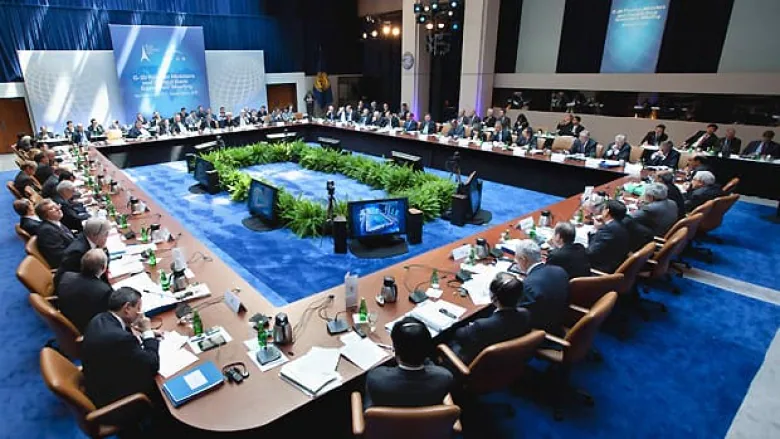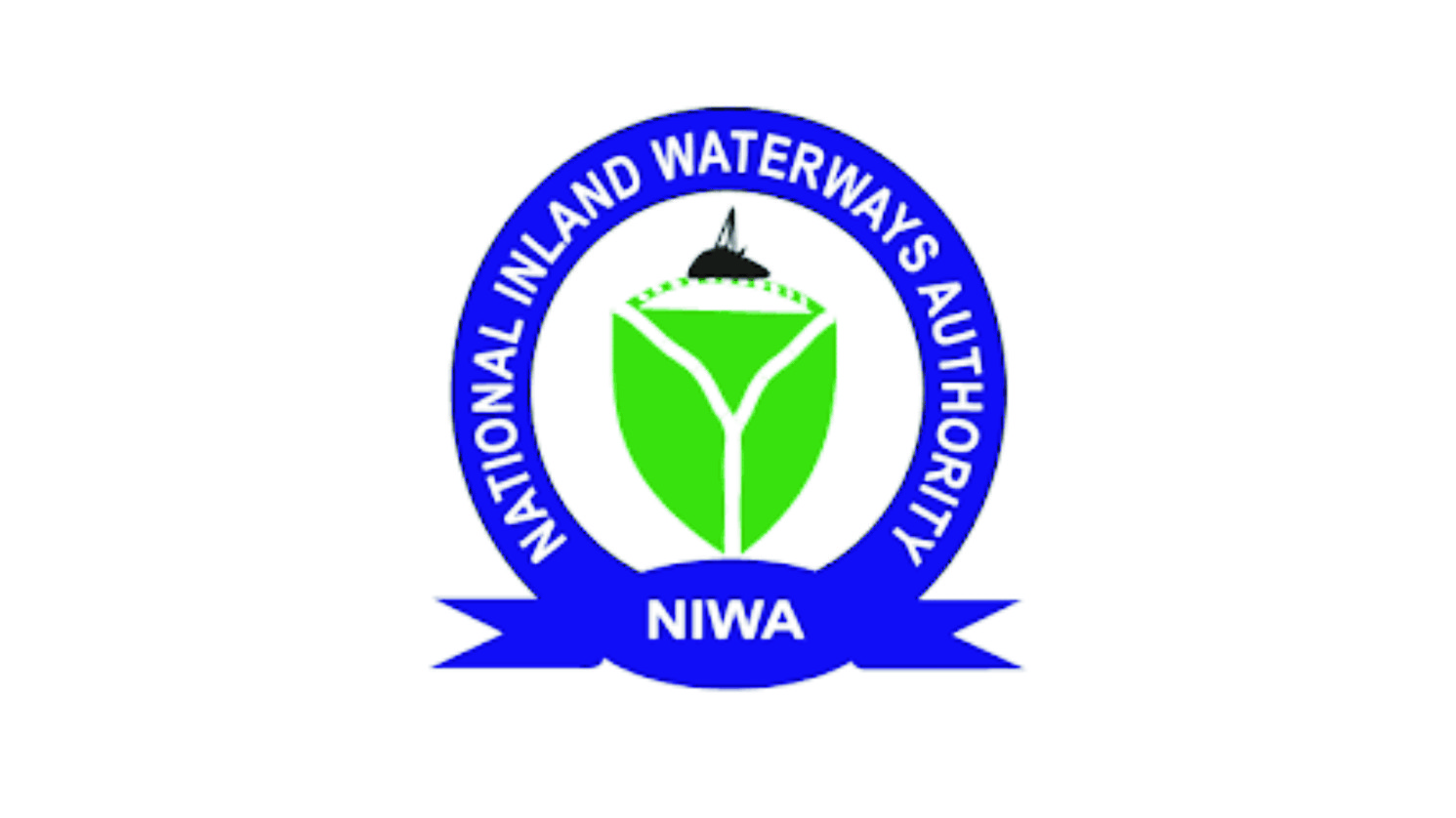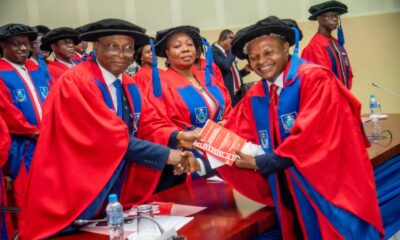Business
Monetary Fund Projects Rebound Of Nigeria’s Economy

The world’s apex financial institution, International Monetary Fund (IMF) has projected that Nigeria’s economy will rebound in 2024.
IMF also projected that the economy of Nigeria and other countries in the Sub-Saharan African (SSA) region will rebound to 4.0 percent in 2024.
The apex financial body, which disclosed this in its October 2023 Regional Economic Outlook for SSA, however, noted that a slowdown in reform efforts, a rise in political instability within the region, or external downside risks could undermine the projected growth.
“2023 has been a difficult year for activity in sub-Saharan African economies. The inflationary shock following Russia’s war in Ukraine has prompted higher interest rates worldwide, which has meant slowing international demand, elevated spreads, and ongoing exchange rate pressures.
“As a result, growth in 2023 is expected to fall for the second year in a row to 3.3 percent from 4.0 percent last year. The region is expected to rebound next year, with growth increasing to 4.0 percent in 2024, picking up in four-fifths of the sub-Saharan Africa’s countries, and with strong performances in non-resource intensive countries.
“Macroeconomic imbalances are also improving; inflation is falling for most of the region, and public finances are gradually being put on a more sustainable footing’’, it stated.
IMF also said countries in the region need to address high inflationary pressures, exchange rate pressure, manage debt obligations while creating space for development spending, and improve living standards and potential growth to be able to meet its projected 4.0 percent economic growth for the region by 2024.
“But the rebound is not guaranteed. A slowdown in reform efforts, a rise in political instability within the region, or external downside risks (including from China slowing down) could undermine growth.
“Moreover, four clouds are on the horizon which require determined policy action in the face of difficult tradeoffs: First, inflation is still too high. It is in double digits in 14 countries. And it remains above target in most countries with explicit targets.
“Second, the region continues to face significant exchange rate pressures.
“Third, debt vulnerabilities are elevated. The funding squeeze is not over, as borrowing rates are still high, and rolling over debt is a challenge. And half of the low-income countries in the region are at high risk or in debt distress.
“Finally, while the recovery is underway, economic divergences within the region are widening. In particular, per capita incomes in resource intensive economies remain subdued”, it declared.
By: Corlins Walter
Continue Reading
Business
NIMASA Commits To Creating Enabling Environment For Maritime Business

The Nigerian Maritime Administration and Safety Agency (NIMASA) has affirmed that it is taking strategic steps to enhance local participation and encourage investment in the maritime sector under the supervision of the Ministry of Marine and Blue Economy.
The Director General of NIMASA, Dr. Dayo Mobereola, who disclosed this recently while receiving the Executive Members of the Nigerian Merchant Navy Officers and Water Transport Senior Staff Association, reaffirmed the Agency’s commitment to fostering a level playing field and creating an enabling environment for businesses in Nigeria’s maritime sector.
Dr. Mobereola revealed that NIMASA is deepening its collaboration with the Nigerian Content Development and Monitoring Board (NCDMB) to explore policies that will boost indigenous involvement and strengthen Nigeria’s maritime sector.
“The Honourable Minister of Marine and Blue Economy is committed to encouraging indigenous players to invest more in Nigeria’s maritime industry. Issues such as national carriers and trade terms remain top priorities under this administration.
“Our focus is to create an enabling environment where private investors can thrive. In this regard, we have initiated discussions with the NCDMB and NNPC Limited to address these critical matters”, he stated.
He said NIMASA remains committed to fostering strategic partnerships that will enhance local investment, create jobs, and drive sustainable growth in the maritime sector.
In response, Comrade John Aleakhue Okpono, Secretary General of the Merchant Navy Officers and Water Transport Senior Staff Association, emphasized the need for closer collaboration between NIMASA and the Merchant Navy.
He also urged the Agency to review waiver clauses to ensure more opportunities for Nigerian seafarers.
Stories by Nkpemenyie Mcdominic, Lagos
Business
FG Inaugurates Special Committee Against Boat Accident

Towards enhancing safety on Nigeria’s inland waterways, the Federal Government, through the Minister of Marine and Blue Economy, Adegboyega Oyetola, has inaugurated a Special Committee on the Prevention of Boat Mishaps in Nigeria.
According to a statement on by the spokesman, National Inland Waterways Authority (NIWA), Suleiman Makama, the event, which was held at the Ministry’s Conference Room in Abuja, confirmed crucial steps taken to address the recurring challenges of boat accidents across the country.
In his address, the Honourable Minister emphasized the urgent need to stem the tide of tragic boat mishaps, which have resulted in significant loss of lives and properties.
He described the country’s waterways as vital to commerce, transportation, and livelihoods, stressing that their safety and efficiency are paramount to the development of Nigeria’s blue economy.
He noted that the establishment of this committee aligns with the 2024 International World Maritime Day theme, “Navigating the Future: Safety First”.
“The task before us is daunting, but with unwavering commitment, we can eliminate boat mishaps and ensure that our waterways remain safe, navigable, and prosperous for generations to come”, Oyetola stated.
The committee comprises key stakeholders, including state government representatives, the Association of Boat Operators in Nigeria, marine safety experts, and academics.
It will be chaired by the Managing Director of the National Inland Waterways Authority (NIWA), Mr. Bola Oyebamiji, while Mr. Adams Offie, Deputy Director of Inland Waterways at the Ministry, will serve as Secretary.
The committee is tasked with conducting an in-depth review of commercial boat operations in Nigeria, identifying the root causes of boat mishaps, and proposing sustainable solutions.
In his acceptance speech on behalf of the committee, Oyebamiji assured the Minister on the dedication of members to deliver on the assignment.
He emphasized that safety on Nigeria’s inland waterways is non-negotiable, adding that NIWA, under the leadership of the Honourable Minister, has been refocused to uphold its mandate without compromise.
Acknowledging the Honourable Minister of Marine and Blue Economy for his proactive leadership, Oyebamiji noted that the establishment of the committee represents a critical step in addressing the persistent safety challenges in inland water transport.
“This is another solution-driven initiative aimed at eliminating boat mishaps on our waterways. I assure you that the confidence reposed in this committee will not be misplaced.
“At NIWA, this is an opportunity for us to intensify our efforts in reducing marine accidents to the barest minimum. On behalf of my fellow committee members, we pledge to work diligently and with utmost focus on the assigned terms of reference.
“Safety on our inland waterways is non-negotiable. NIWA has been refocused to ensure the highest safety standards, and this committee will work diligently to address the causes of boat mishaps and find lasting solutions,” Oyebamiji said.
The committee has been tasked with evaluating the root causes of boat accidents and recommending lasting solutions to enhance safety and operational standards.
Business
LASG Arrests Illegal Dredgers … Issues Stop Work Order
The Lagos State Government, through the Ministry of Waterfront Infrastructure Development, has launched a massive clampdown on illegal dredgers operating in the State, ordering them to stop work immediately.
This exercise, which was carried out by the officials of the Ministry of Waterfront Infrastructure Development, is aimed at curbing environmental degradation and promoting sustainable development across the waterfront schemes located across the coastal regions of the metropolis.
According to a statement, the enforcement operation, led by the Commissioner for Waterfront Infrastructure Development, Hon. Ekundayo Alebiosu, alongside members of his team, raided several illegal dredging sites which were subsequently shut down by the officials of the Ministry.
Some suspected dredging operators were arrested and a stop-work order was served on erring dredgers for non-compliance with laid-down regulations of the State Government.
Alebiosu warned the operators that failure to comply with extant laws guiding dredging activities could have dire effects and will result in severe penalties, including total closure of the sites.
Reacting to the claim that Dredgers are the major cause of environmental degradation in the state, including erosion and flooding, the Commissioner emphasised the need for dredging activities to be conducted lawfully to preserve roads, public infrastructure, and wetlands.
He explained that the State Government has vowed to streamline the activities of dredgers in the state to meet acceptable international standards.
“The Lagos State Government’s clampdown on illegal dredgers is a significant step towards protecting the environment and promoting sustainable development in the state.
“We will continue to carry out surveillance and raids across the coastal areas to ensure that the activities of a few don’t impact the lives of law-abiding citizens negatively”, Alebiosu stated.
-

 News1 day ago
News1 day agoTinubu Appoints Ogunjimi Accountant-General
-
News1 day ago
Traditional Ruler Tasks Security Agencies On Peace In Ngo
-
Rivers1 day ago
Fubara Approves Building Admin Block, Hostels, Others For IAUE
-
Sports1 day ago
Rivers Hoopers Admit Tough BAL Draw
-

 News3 days ago
News3 days agoDon Tasks Varsities On Artificial Intelligence
-
Business1 day ago
Expert Highlights Blockchain Potential To Transform Africa’s Economy
-
Politics1 day ago
Lagos Assembly Crisis: Rhodes-Vivour Calls For End To “Troubling Pattern”
-
Niger Delta1 day ago
IFAD, LIFE-ND Inaugurate Multi-million Naira Agric Projects In Delta

